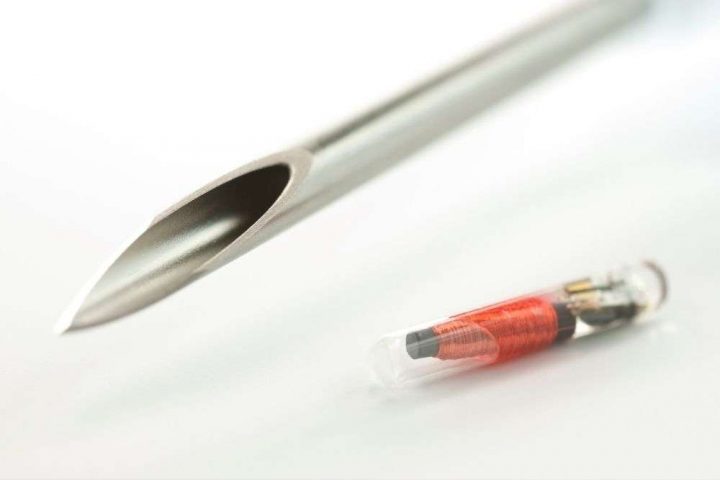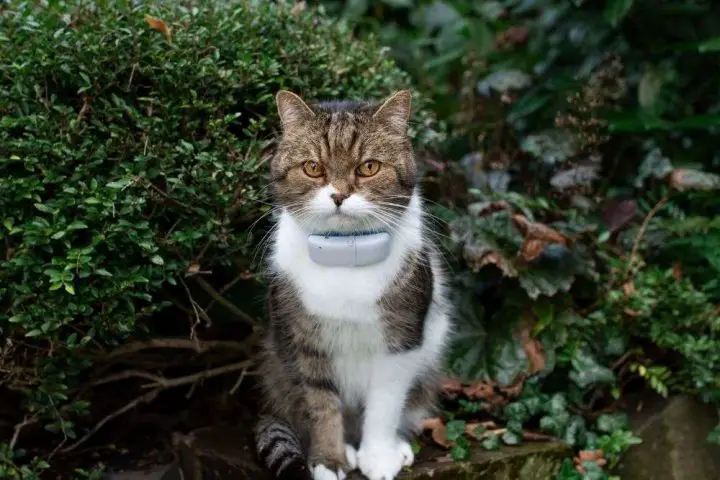Pet owners are always looking for solutions to a wide variety of problems. Microchipping an animal helps solve a number of problems, ranging from finding the animal to making sure their pet is returned home as quickly as possible. A lot of pet owners find relief in knowing that there is a simple way to find a lost pet, especially those that have had to suffer through the loss of a pet that somehow escaped and was never seen again. Microchip tracking is the best possible solution for a wide variety of issues and can make the owners of the animal feel so much better, especially if the animal escapes again.
Table of Contents
- What Is A Microchip?
- Do Dog Microchips Have GPS?
- Things To Keep In Mind With GPS Trackers
- Microchip vs GPS
- FAQs
What Is A Microchip?
A microchip is simply an implant with an identification number on it.
All sorts of animals are given a microchip, ranging from dogs to mice; even some zoo animals are given a microchip.
The microchip has one major disadvantage: it requires that the person finding an animal with a potential microchip in it take the animal to a veterinarian in order to determine if there is a microchip and, if so, what the number on it is.
There is no other information on the microchip, but that is usually more than enough to reunite the animal with its owner.

Do Dog Microchips Have GPS?
It needs to be noted that the microchip is just a radio-frequency identification device in a glass container; it is only useful with the right device. They do not have a GPS tracker attached to them; this means that a microchip is only useful for finding an implanted animal if the animal can be taken to a veterinarian with the proper equipment. The RFID that makes up the microchip is only useful for a short distance, usually just a matter of yards, making it useless for finding a dog that has likely gotten itself into some serious trouble.
So How Does A GPS Tracker Work?
A GPS tracker takes advantage of the global positioning system, ergo the abbreviation.
The problem is that a working GPS tracker is far too bulky for a dog microchip GPS or cat microchips GPS situation, as it requires both a battery and a screen of some sort. These would not fit in a standard microchip; at the very least, it would be far too bulky to fit into even a dog’s body.
This means that a GPS tracker needs to fit onto the collar of the animal in question in order to be useful and still be small enough to not hinder the animal.

Is It Likely That There Will Ever Be A Combination Microchip/GPS Tracker?
Because of the size of the GPS tracker, it is likely that you will never see a tracker/microchip combination. At least, with the current technology available.
As noted, the tracker requires a screen to calibrate it and make sure that the GPS is working, as well as some sort of battery in order to work. While the battery could be made smaller, there are limits to how small the battery can go; even the smallest battery would need to be surgically implanted.
The tracker itself could be calibrated with some sort of post extending to the outside of the animal. But that would create so many potential infection problems, especially for an active animal.
While obviously the system has been developed for humans, such as for pacemakers, the same system would not work for animals. Humans can learn to ignore the post and deal with any other issues, such as itchiness and keeping it away from water. An active animal would therefore not work well in the same situation.
All of this translates to a problem shrinking the GPS tracker down to the size of a microchip. The smallest GPS tracker is thus a model made so that the device can be attached to the animal’s collar.
However, this means that the device does have limits; it would not work for an extremely active animal, such as most cats and some dogs.
Thus, before getting the animal a GPS tracker, keep in mind that not all animals do well with the device. However, a lot of models are waterproof, making it great for animals that love water.
Things To Keep In Mind With GPS Trackers
There are a number of issues to keep in mind when looking at GPS trackers.
First, keep in mind that a microchip is still useful; it may not help track the animal, but it does help reunite a pet with its owner should something happen to the GPS tracker.
Also, a GPS tracker is likely to require a subscription in order in order to work. Without the subscription the GPS tracker will not connect to the satellite system, making it essentially useless. You should also look at the reviews for trackers before purchasing one; not all trackers are the same, after all.
You also need to look for the durability of the tracker; not all trackers can deal with all animals. You need to make sure that the tracker will survive the animal. Otherwise, you will be replacing it with a ridiculous frequency. You should also be looking for a brightly-colored tracker; it may sound silly, but you want to be able to find the tracker easily. A bright color is obviously easier to find than a dull or camouflaged one.
Microchip vs GPS
The microchip is the best defense your pet has against a wide variety of possible problems. The process is simple, requiring a small injection, and it makes your pet easier to find. Better yet, a lot of information can be put on the chip, such as your address and number. This makes it easier to return your pet to you if it is lost. For a lot of owners, this is a great relief, especially if the pet is highly active and likely to escape.
With a microchip that has a GPS feature, you can find your animal faster and make sure that the pet is still doing fine any time you want. But this technology doesn’t exist yet. Therefore, you can instead microchip your pet and attach a GPS to their collar, for your peace of mind.
FAQs
Traditional pet microchips do not have GPS capabilities. The primary purpose of a microchip is to provide a permanent form of identification for pets. It’s a small, passive device that contains a unique identification number that can be read by a compatible scanner. Meanwhile, GPS pet tracking devices are typically worn on a collar or harness and use satellite technology to provide real-time or near-real-time location information.
Yes, there are GPS tracking devices designed specifically for pets, which can help pet owners keep track of their pets’ locations in real-time or near-real-time. These devices are commonly worn on a pet’s collar or harness and use GPS technology to provide location information.






